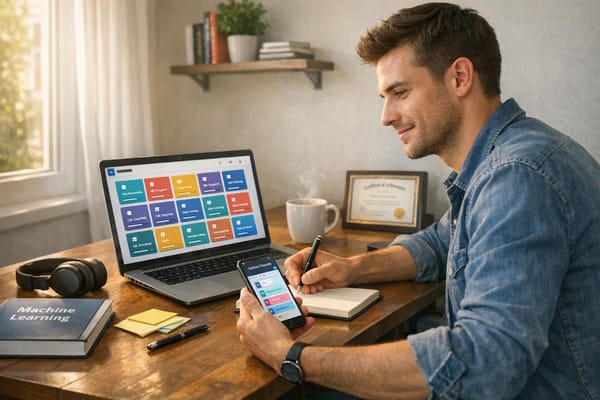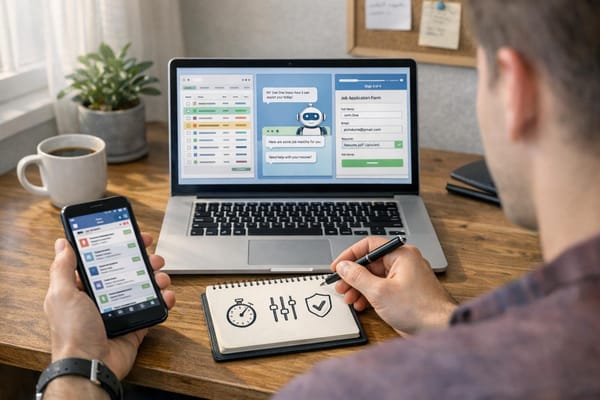Mastering the Art of Interview Questions to Land Your Dream Job

Getting the job you desire often hinges on how well you handle interview questions. These questions are not just a formality; they’re your opportunity to showcase skills and personality. Mastering them can set you apart from other candidates.
Interviews can be nerve-wracking, especially when uncertainty creeps in. However, preparation can transform these nerves into confidence. When you anticipate the questions, you'll respond in a more relaxed and articulate manner. This is crucial in making a positive impression.
Moreover, understanding the nuances of interview questions aids in highlighting your strengths. Each question offers a chance to showcase your qualifications, work ethic, and cultural fit for the company. Potential employers are keen to understand your thought process and problem-solving abilities through these inquiries.
Additionally, effective communication is vital during interviews. The art of succinctly answering questions allows you to be memorable. You want the interviewer to leave with a clear understanding of the value you bring to their organization. Ultimately, mastering interview questions is an essential skill that can significantly enhance your job search process.
Understanding Different Types of Questions in the Interview
Interview questions typically fall into several categories, each serving a distinct purpose. Behavioral questions are among the most common. They delve into your past experiences, asking how you’ve handled various situations. The goal is to determine how you might act in future scenarios.
Another prevalent type is situational questions, which present hypothetical situations. They assess your critical thinking and problem-solving skills. Interviewers want to see how you approach challenges and make decisions. It’s an opportunity to demonstrate your analytical prowess.
Then there are technical questions, especially relevant in fields like IT and healthcare. These questions assess specific knowledge related to the job. Preparing for these requires a deeper understanding of your field and the ability to show expertise.
Finally, cultural fit questions gauge whether you align with the company's values and environment. They often focus on teamwork, ethics, and interpersonal skills. Understanding these types helps you tailor your responses appropriately, ensuring you present your best self.
Preparing for Common Interview Questions
Preparation is at the heart of successfully answering interview questions. Start by researching common questions. You’ll often find questions about strengths, weaknesses, and career goals. Practice articulating your thoughts out loud. This builds confidence and helps your responses flow more naturally.
Next, use the STAR method when addressing behavioral questions. This stands for Situation, Task, Action, and Result. By structuring your responses, you make it easier for interviewers to understand your experiences and the value you contributed.
Don’t forget to tailor your answers to the specific job description. Highlight the skills and experiences that are most relevant. This shows you understand the role and are genuinely interested in the position.
Lastly, prepare questions for the interviewer. This showcases your interest and gives you insight into the company's culture. Asking about team dynamics or future projects can spark engaging conversations that leave a lasting impression.
The STAR Method: Answering Behavioral Questions Effectively
Behavioral interview questions can be challenging. Employers often use them to assess how you've handled situations in the past. One effective way to answer these questions is through the STAR method. This stands for Situation, Task, Action, and Result.
First, describe the Situation. Provide context to set the stage for your story. Next, outline the Task. What were you responsible for? This allows you to clarify your role in the scenario.
Then, delve into the Action you took. Detail the steps you took to address the situation. It's essential to focus on your contributions, even if you were part of a team. Lastly, explain the Result. What did your actions achieve? Quantify your success if possible. This not only illustrates your effectiveness but reinforces your skills.
Practice using the STAR method with various experiences. This way, you'll feel prepared when similar questions arise. Remember, interviewers want to see how you think and react. Your ability to communicate this clearly can set you apart from other candidates. Embrace this method to showcase your competencies confidently in discussions about previous challenges.
Technical Questions: Showcasing Your Expertise
Technical questions allow you to exhibit your skills and knowledge in specific fields. These questions can range from industry-specific queries to problem-solving scenarios. Preparing for technical questions requires a solid understanding of your domain.
Start by reviewing common technical questions related to the position you are applying for. Resources like forums, company-specific interview guides, and colleagues can be invaluable. Rehearsing your answers will boost your confidence.
When answering, be concise and clear. If it's a problem-solving question, talk through your thought process. This steps gives interviewers insight into how you approach challenges. Additionally, don’t be afraid to ask clarifying questions if you don’t understand something. This demonstrates your analytical thinking and willingness to engage.
Lastly, express your enthusiasm for the field. When you share your passion, it captivates interviewers. They like to see candidates who are excited about their work because this enthusiasm often translates into productivity. Prepare thoroughly, but also let your personality shine through, making your technical expertise relatable and engaging.
Questions to Ask the Interviewer
Your questions for the interviewer are just as important as your answers. They showcase your interest in the role and company. Aim to ask thoughtful, engaging questions. This can leave a lasting impression on the interviewer.
Start with questions about the team dynamics. Understanding how a team collaborates can give you insights into the workplace culture. You might ask, “Can you describe the team I would be working with?” It encourages a dialogue and shows curiosity.
You can also inquire about growth opportunities. Questions like “What does success look like in this position?” highlight your eagerness to excel. Moreover, asking about the company's future direction shows you are interested in being a part of its journey.
Lastly, don’t forget about the challenges the role may face. A question such as “What are some challenges the team is currently facing?” displays your proactive mindset. It indicates you’re ready to tackle obstacles instead of shying away. Pay close attention to the interviewer's responses, as they can further inform your decision about the role.
Role-Playing: Practicing with a Friend or Mentor
One of the best ways to prepare for tough interview questions is through role-playing. This technique involves simulating the interview process with a friend or mentor. They can pose various questions while you practice responding. This not only builds your confidence but also helps solidify your answers.
Choosing someone who understands the job market or the specific role is vital. They can provide invaluable feedback. Ask them to tailor questions that align with your desired position. This specificity will give you a more realistic practice environment.
During your practice, it's crucial to treat it like a real interview. Dress professionally and maintain a formal demeanor. This helps you become accustomed to the pressure of actual interview settings. Record your session if possible. Watching it later allows you to identify areas for improvement.
Additionally, consider varying the types of questions asked. Your role-play partner can throw in unexpected or challenging ones, forcing you to think on your feet. This kind of preparation equips you to handle whatever might come your way during the real interview. Remember, practice makes perfect, and role-playing is a powerful tool to make your interview experience smoother.
Handling Unexpected or Tricky Questions
Every candidate faces unexpected or tricky questions in interviews. These can disrupt your flow and throw you off balance. However, with the right strategies, you can handle them effectively. First, take a deep breath when faced with a surprising question. Pausing shows thoughtfulness and gives you a moment to collect your thoughts.
Try to break down the question. Identify its core components and determine what the interviewer is really asking. If the question is vague, don’t hesitate to ask for clarification. You might say, "Could you elaborate on that?" This keeps the conversation flowing and gives you more time to think.
Additionally, use the STAR method to structure your responses effectively. STAR stands for Situation, Task, Action, and Result. This approach helps you frame your answers clearly, even in unexpected scenarios. It keeps your response focused and relevant.
Practicing answers to tricky questions ahead of time can also be beneficial. Common ones like "What is your biggest weakness?" can catch many off guard. Developing a thoughtful response can save you from rambling or giving an unprepared answer.
The Importance of Body Language and Presentation
Your body language and overall presentation play a significant role in how interviewers perceive you. Non-verbal cues often speak louder than words. Open body language can express confidence and engagement. Maintain eye contact, and avoid crossing your arms. A firm handshake can also make a great first impression.
Pay attention to your posture throughout the interview. Slouching can signal disinterest, while an upright stance demonstrates enthusiasm. Make sure to nod occasionally. This shows you are actively listening, reinforcing your interest in the conversation.
Additionally, your presentation affects how your verbal messages are received
When it comes to interviews, your body language and presentation can speak volumes. Non-verbal cues often convey more than words alone. A firm handshake, steady eye contact, and an open posture can set a positive tone from the start.
Dressing appropriately for the role you’re applying for shows professionalism and respect for the opportunity. Your appearance matters; it creates a first impression that lasts long after you've left the room.
During the interview, be mindful of your gestures. Avoid crossing your arms or fidgeting—these habits may suggest nervousness or defensiveness. Instead, use hand movements to emphasize points when appropriate.
Remember to smile genuinely; this simple gesture can help establish rapport with your interviewer. Positive energy is contagious and makes you more memorable as a candidate.
Practice active listening through nodding or brief verbal affirmations like “I see” or “That’s interesting.” This engagement shows you're not just waiting for your turn to speak but are truly interested in what’s being said.
Mastering body language is essential in presenting yourself as confident and competent. By honing these skills along with preparing answers to questions, you'll enhance your chances of making a lasting impression on potential employers.




